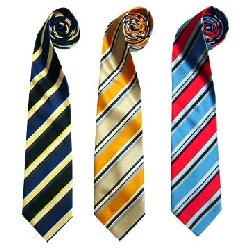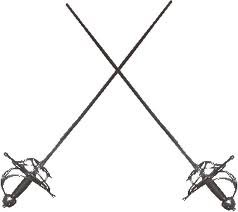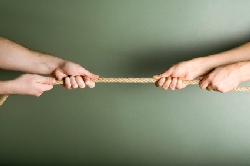- Not the important stuff, the inconsequential items.
 It's interesting the types of objects we collect and never seem to throw away. I'm not talking about sentimental things like photographs, just the general brik a brak we are more inclined to keep instead of discarding. With me, its cigar boxes and coffee cans. I've used them to store everything from nails and other hardware, to tickets, baseball cards, and other trinkets. I think of them as handy storage units and, as such, hate to throw them away, even if I have an ample supply of them. Most of the time I'll ask friends and colleagues if they want them, but most decline. Inevitably, it is with deep regret that I finally decide to throw them in the garbage. What a waste.
It's interesting the types of objects we collect and never seem to throw away. I'm not talking about sentimental things like photographs, just the general brik a brak we are more inclined to keep instead of discarding. With me, its cigar boxes and coffee cans. I've used them to store everything from nails and other hardware, to tickets, baseball cards, and other trinkets. I think of them as handy storage units and, as such, hate to throw them away, even if I have an ample supply of them. Most of the time I'll ask friends and colleagues if they want them, but most decline. Inevitably, it is with deep regret that I finally decide to throw them in the garbage. What a waste.
There are other miscellaneous items we do not like to dispose of:
Shipping boxes are typically collected with the thought they can be used to mail something to a family member or friend. They are particularly handy for birthdays and the Christmas holidays, but we tend to collect too many of them. I've also seen boxes that have been reused many times over the years. I think some were made back in the 60's.
Towels and cloths have a long life expectancy. Even after we have stopped using them in the bathroom they end up in a rag bag for outdoor use, such as washing cars. Have you noticed the rag bag only gets bigger, never smaller?
Just about every household has some sort of container to collect spare change. We used an old wine jug for years to collect spare change. When we finally "cashed out," I was amazed how much we had collected. It was easily over $100. I have seen several households though where they are never emptied and sent to the bank. I don't think a lot of people want to waste their time with pennies, nickels, and dimes.
A lot of homes seem to collect an inordinate amount of refrigerator magnets, some with such an extensive array of pictures it is difficult to see the refrigerator behind them. Every now and then you should clean those out.
Records, CD's, DVD's, and VHS tapes abound in a lot of homes. I still have quite an impressive collection of 33 LP's from my youth, as well as 45's. Fortunately, I still have a decent turntable and will occasionally play an "oldie." However, I know a lot of people who have maintained their record collections but have nothing to play them on. I also do not use CD's much anymore. My kids collected a mountain of them which were quickly abandoned when the iPod was introduced. I am reluctant to dispose of them as I realize it was a substantial investment.
There are people who have collected magazines over the years, even though this is something that has essentially evaporated over time. I have some copies of "LIFE" from the 60's featuring the space race and other newsworthy events from that decade. I also have some "TV Guides" from back then as well. People also like to keep their old "Playboys," which I'm told are now worth a lot of money. The one magazine though that most people are hesitant to dispose of is "National Geographic." I know of dozens of homes with extensive "NATGEO" collections, some weighing so much they bend the shelves they sit upon. My parents kept their copies for years until I finally helped clean them out. Your first inclination is to give them to the local library. If you want to see horror in the eyes of someone, bring your copies of "NATGEO" to your librarian. They will only throw them away.
People also like to keep the cheap plastic pots that plants come in. I'm not sure why. They are cleaned out, dutifully stacked, and tucked away in a garage or shed where they do nothing more than take up space and collect dust. I guess this is one of those "You never know..." type of items.
Parents like to keep old board games their offspring played with during their youth. I think it's a law that every household must have a copy of "Monopoly" tucked away in a closet somewhere. My mom also has an old "Parcheesi" set, as well as checkers and chess which nobody has used in several decades, and an old Erector Set. By the way, does anybody remember Chinese Checkers?
There are lots of other items people collect, such as old cameras, spices in the kitchen, even paper sales receipts for insignificant items.
I'm sure there are many more items I'm overlooking but these are the things that come to mind. Some we collect due to sentimental value or we perceive them as investments, others we believe will have some practical use sometime in the future. The reality though is that most of it just belongs in the garbage.
With that said, does anyone need a coffee can or cigar box?
Keep the Faith!
Note: All trademarks both marked and unmarked belong to their respective companies.
 Tim Bryce is a writer and the Managing Director of M&JB Investment Company (M&JB) of Palm Harbor, Florida and has over 30 years of experience in the management consulting field. He can be reached at timb001@phmainstreet.com
Tim Bryce is a writer and the Managing Director of M&JB Investment Company (M&JB) of Palm Harbor, Florida and has over 30 years of experience in the management consulting field. He can be reached at timb001@phmainstreet.com
For Tim's columns, see:
timbryce.com
Like the article? TELL A FRIEND.
Copyright © 2013 by Tim Bryce. All rights reserved.
NEXT UP: THE MILLENNIALS - Can they really save America?
LAST TIME: SNAPPED - That's it; enough is enough; leave me alone!
Listen to Tim on WJTN-AM (News Talk 1240) "The Town Square" with host John Siggins (Mon, Wed, Fri, 12:30-3:00pm Eastern), KGAB-AM 650 "The Morning Zone" with host Dave Chaffin (weekdays, 6:00-10:00am Mountain), and KIT-AM 1280 in Yakima, Washington
"The Morning News with Dave and Lance" with hosts Lance Tormey & Mike Bastinelli (weekdays. 6:00-9:00am Pacific). Or tune-in to Tim's channel on YouTube.
Also look for Tim's postings in the Palm Harbor Patch, The Gentlemen's Association, and throughout the Internet.
 Recently I came upon the following headline,
Recently I came upon the following headline,  The Wall Street Journal recently ran an article on the decline of men wearing dress ties to work. They quoted a Gallup Poll that said the number of men who wear ties every day to work last year dropped to a record low of 6%. I'm not sure I agree with this number but there is no doubt ties have greatly diminished in the business world. I still put one on when I'm dealing with a customer and I do so as a sign of respect for the other party. Today it seems the only people who wear ties are politicians, newscasters, attorneys, doctors, and corporate executives, all of which do so as a sign of authority. And maybe they're right.
The Wall Street Journal recently ran an article on the decline of men wearing dress ties to work. They quoted a Gallup Poll that said the number of men who wear ties every day to work last year dropped to a record low of 6%. I'm not sure I agree with this number but there is no doubt ties have greatly diminished in the business world. I still put one on when I'm dealing with a customer and I do so as a sign of respect for the other party. Today it seems the only people who wear ties are politicians, newscasters, attorneys, doctors, and corporate executives, all of which do so as a sign of authority. And maybe they're right.
 I think it was President Eisenhower who popularized the idea of cooking on charcoal grills. Since then, grilling has gone from an art to a science. In the early days you had a simple Weber grill, a bag of charcoal, some lighter fluid, a match, and "voilà" you've got a burned piece of meat on your plate. The grills of today though have come a long way since then and are rather sophisticated (and expensive).
I think it was President Eisenhower who popularized the idea of cooking on charcoal grills. Since then, grilling has gone from an art to a science. In the early days you had a simple Weber grill, a bag of charcoal, some lighter fluid, a match, and "voilà" you've got a burned piece of meat on your plate. The grills of today though have come a long way since then and are rather sophisticated (and expensive).
 Before graduating from high school you will hopefully have a game plan as to how you are going to lead your life. Maybe you sought advice from your parents, a trusted guidance counselor, a teacher or a close friend. Perhaps you also attended a college recruiting session, visited a campus, a trade school, or a military advisor. And hopefully you started investigating these options in your junior year or earlier. Unfortunately, some people do not. Their path is perhaps dictated by their parents, or you have no lans at all and will likely drift aimlessly away.
Before graduating from high school you will hopefully have a game plan as to how you are going to lead your life. Maybe you sought advice from your parents, a trusted guidance counselor, a teacher or a close friend. Perhaps you also attended a college recruiting session, visited a campus, a trade school, or a military advisor. And hopefully you started investigating these options in your junior year or earlier. Unfortunately, some people do not. Their path is perhaps dictated by their parents, or you have no lans at all and will likely drift aimlessly away.
 I took some time off during the Memorial Day weekend and escaped to the beach. I guess I'm like just about anyone in that I rarely take advantage of the scenery in your own backyard. It's been a while since I've been to the beach and I found the rhythm of the waves in the morning tranquil and somewhat therapeutic. However, I had forgotten about all of the pollution on the beach, eye pollution that is. I was amazed how many women of all sizes and shapes wore a bikini and probably 99% of those I saw shouldn't. Please don't get me wrong, there is certainly nothing wrong with an attractive woman wearing a bikini, but most of what I saw defied belief. Sure, if you've got it flaunt it, but if you haven't got it, forget it. The ship has sailed and it's time to put on a little more canvas in the rigging.
I took some time off during the Memorial Day weekend and escaped to the beach. I guess I'm like just about anyone in that I rarely take advantage of the scenery in your own backyard. It's been a while since I've been to the beach and I found the rhythm of the waves in the morning tranquil and somewhat therapeutic. However, I had forgotten about all of the pollution on the beach, eye pollution that is. I was amazed how many women of all sizes and shapes wore a bikini and probably 99% of those I saw shouldn't. Please don't get me wrong, there is certainly nothing wrong with an attractive woman wearing a bikini, but most of what I saw defied belief. Sure, if you've got it flaunt it, but if you haven't got it, forget it. The ship has sailed and it's time to put on a little more canvas in the rigging.
 I think Americans have a problem taking vacations. Although most of us feel lucky to take a week off or a few days here and there, it's rare for Americans to take vacations like our European or Australian counterparts who may take as much as a month off at a time. Sure, we enjoy some time off to recoup from work, but I think the problem here is that Americans don't know how to relax. Whereas others take the time to study the culture of a different locale, Americans rush from one spot to another snapping photos along the way. If you've ever seen the movie,
I think Americans have a problem taking vacations. Although most of us feel lucky to take a week off or a few days here and there, it's rare for Americans to take vacations like our European or Australian counterparts who may take as much as a month off at a time. Sure, we enjoy some time off to recoup from work, but I think the problem here is that Americans don't know how to relax. Whereas others take the time to study the culture of a different locale, Americans rush from one spot to another snapping photos along the way. If you've ever seen the movie,  I have a problem with gossip in the office but I think we are all guilty of some infraction of it at some time or another. Petty gossip is one thing, viscous slander is something else altogether. Not surprising, there is a lot of misinformation floating around in an office regarding people and corporate direction. We often hear of rumors of people bucking for a certain job, looking to leave and join a competitor or customer, to sabotage a key project, or that the company is going to down size or outsource the operations to Timbuktu. Naturally, such rumors can put a damper on employee morale, making it harder to concentrate and see assignments through to completion. Managers should be sensitive to rumors and squelch them as soon as possible. If not, productivity will suffer. To do so, the manager should always keep in ear open as to what is being said around the water cooler or lunch table. Meeting with key members of the staff periodically for a drink after hours can also be useful for detecting what is being said as well as to build camaraderie and trust with the staff.
I have a problem with gossip in the office but I think we are all guilty of some infraction of it at some time or another. Petty gossip is one thing, viscous slander is something else altogether. Not surprising, there is a lot of misinformation floating around in an office regarding people and corporate direction. We often hear of rumors of people bucking for a certain job, looking to leave and join a competitor or customer, to sabotage a key project, or that the company is going to down size or outsource the operations to Timbuktu. Naturally, such rumors can put a damper on employee morale, making it harder to concentrate and see assignments through to completion. Managers should be sensitive to rumors and squelch them as soon as possible. If not, productivity will suffer. To do so, the manager should always keep in ear open as to what is being said around the water cooler or lunch table. Meeting with key members of the staff periodically for a drink after hours can also be useful for detecting what is being said as well as to build camaraderie and trust with the staff.
 When we join a new company, we're all hoping for a fresh start and clean slate. The last thing we want is to get embroiled in political intrigue, regardless of how petty it might seem. Most of us just want to do our work and move along with our lives. Even if this were so, which is rarely the case, we must still deal with "political correctness" as defined by society; we have to recognize certain protocols in our mannerisms, language, and conduct. So, even before we get started in a new job, we have to recognize there is going to be some form of politics, like it or not. I remember visiting a manufacturing company in the Midwest where a Vice President proudly said to me, "You'll like this place Tim, there's no politics here whatsoever." And I think he firmly believed it too. In reality, they had more cutthroat politics than I had ever seen before.
When we join a new company, we're all hoping for a fresh start and clean slate. The last thing we want is to get embroiled in political intrigue, regardless of how petty it might seem. Most of us just want to do our work and move along with our lives. Even if this were so, which is rarely the case, we must still deal with "political correctness" as defined by society; we have to recognize certain protocols in our mannerisms, language, and conduct. So, even before we get started in a new job, we have to recognize there is going to be some form of politics, like it or not. I remember visiting a manufacturing company in the Midwest where a Vice President proudly said to me, "You'll like this place Tim, there's no politics here whatsoever." And I think he firmly believed it too. In reality, they had more cutthroat politics than I had ever seen before.
 I have been fortunate to have visited a lot of companies in my lifetime as a consultant. I have also participated in several nonprofit groups, many of which are well established and steep in customs and tradition. Interestingly, a lot of these organizations operate on autopilot when it comes to executing procedures. So much so that whenever someone suggests something new as a means of expediting a process it is often greeted as if it were heresy. After all, "That is the way it has always been done." I'm sure we have all heard this on more than one occasion and is the earmark of a bureaucracy.
I have been fortunate to have visited a lot of companies in my lifetime as a consultant. I have also participated in several nonprofit groups, many of which are well established and steep in customs and tradition. Interestingly, a lot of these organizations operate on autopilot when it comes to executing procedures. So much so that whenever someone suggests something new as a means of expediting a process it is often greeted as if it were heresy. After all, "That is the way it has always been done." I'm sure we have all heard this on more than one occasion and is the earmark of a bureaucracy.
 Following the publication of my book,
Following the publication of my book,  Back in 2003 the International Facility Management Association (IFMA) conducted a survey of the most common complaints of office workers. Office temperature, which we have discussed in the past, topped the list, but there were others, including office noise which many workers found to be very distracting. However slight, noise can distract us in just about anything, which is why libraries want you to be quiet so that others can concentrate. Offices though are typically more hectic than libraries with phones ringing, people visiting, employees meeting and holding discussions, and office equipment humming away. It can all be rather chaotic.
Back in 2003 the International Facility Management Association (IFMA) conducted a survey of the most common complaints of office workers. Office temperature, which we have discussed in the past, topped the list, but there were others, including office noise which many workers found to be very distracting. However slight, noise can distract us in just about anything, which is why libraries want you to be quiet so that others can concentrate. Offices though are typically more hectic than libraries with phones ringing, people visiting, employees meeting and holding discussions, and office equipment humming away. It can all be rather chaotic.